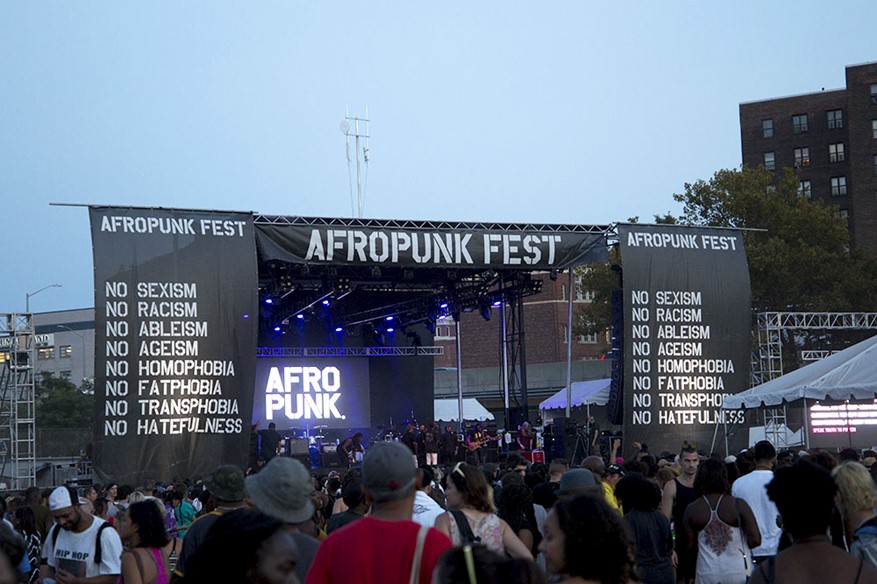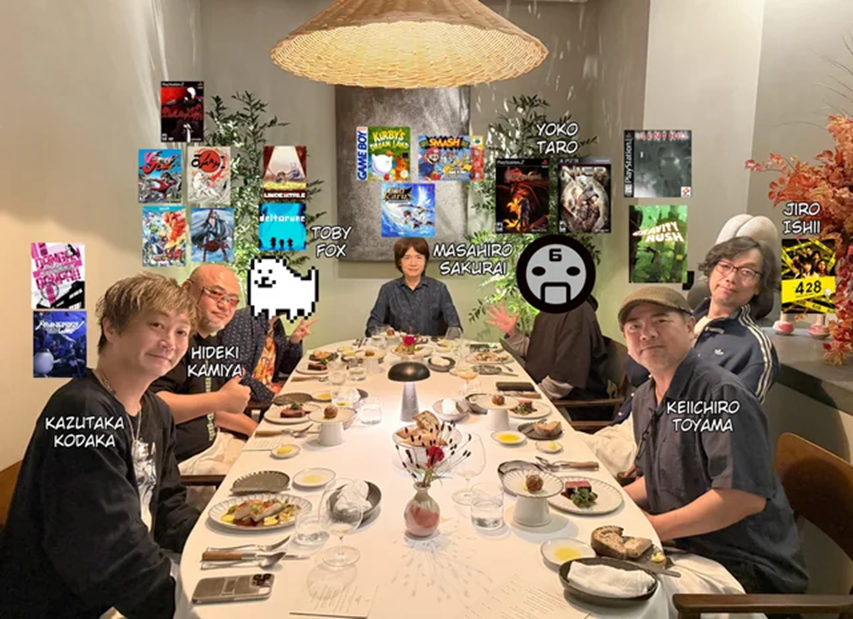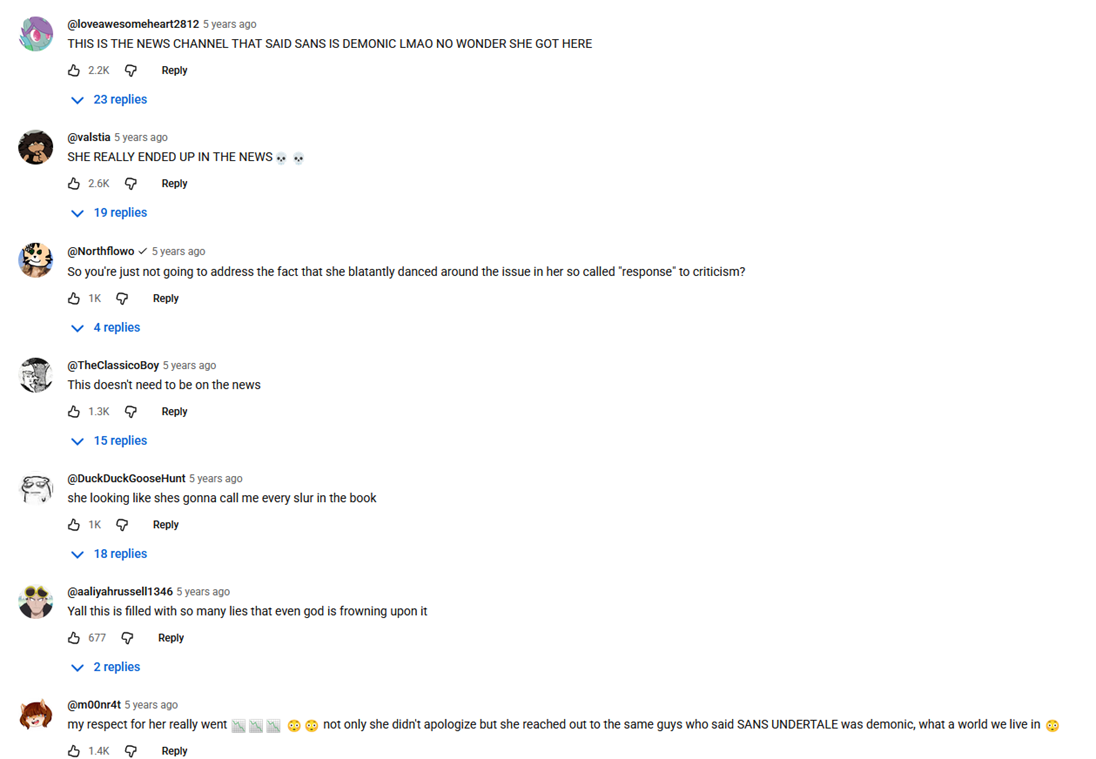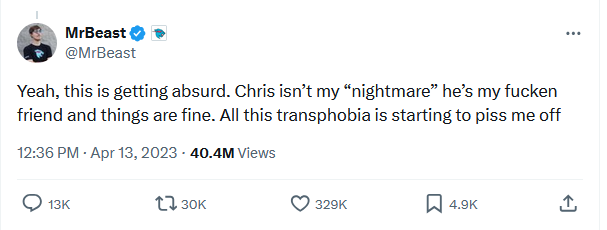One of the biggest problems with the internet, especially culturally, is the rise of the monoculture. It seems as if every weird internet community has been assimilated into one singular monoculture. Every group, every person, is the same exact individual with a different number. It doesn’t matter where you go, everyone is the same and has the same interests. At the same time, every subculture has become exactly the same online group, no matter the skin.
Welcome to the monoculture era of the internet.
Defining a monoculture
First off, what is a monoculture in the context of the internet? A monoculture is when there’s a bunch of groups online, with the same political beliefs, same opinions, same culture, same memes, same behaviors, but all spread out with different people subscribing to the ideas of the chat. You could call these chats hugboxes or echo-chambers in isolation, yet there are tons of random Discord groups with the same kinds of people, the same political beliefs, the same profile pictures/avatars, the same kinds of humor, and the same kinds of discussion no matter what the “skin” of the group is. Just like how the Encyclopedia Dramatica page on 4chan infamously called every board on 4chan “/b/ with a theme”, almost every single Discord server is the same thing with a theme. There’s the same vent posting (usually directed towards parents, jobs, and the latest news story), the same horny posting, the same discussion about the same drugs (usually HRT), and the same parasocial mindsets. This monoculture isn’t solely on Discord, as it increasingly intersects with other groups, notably VRChat and social media such as Bluesky.
You will find tons of people who consume the same culture and post the same dumb memes, no matter where you go. You will listen to Femtanyl, you will play Undertale, you will watch this quirky web series, you will post gifs with text on top of them, and you will be happy.
Likewise on the online right you’ll see monocultures there as well. There will be edgy posting for the sake of it, edgier memes, idolizing infamous dictatorships, complaining about minorities/the job market/parents, and an endless Love Quest to find the perfect girlfriend. The only difference is that there’s one group that sees anime as bad, and a similar one that posts anime girls in between talking about saving the west. If infighting among the left boils down to acceptance of the trans issue, on the right it’s about anime.
Smack dab in the middle is the rat race of mainstream social media, from dumb memelords who use a phone to post to normies trying to win the social media star rat race. Fueling this is the fact that some sites such as YouTube or Twitter/X have payout systems in place (along with auxiliary sites like Patreon/SubscribeStar/Gumroad), meaning that the way to win the rat race is to turn your posts into cash somehow. This means making the absolute sloppiest posts since numbers don’t just pay out in dopamine, but in cash too. This can be seen on Twitter/Bluesky political circles, as political stories designed to make you angry are all over the frontpage of both sites.
The monoculture part is the fact that all these communities don’t just have groupthink, but it’s as if everyone in these groups is churned out in a factory, as another nameless NPC online. In a way, it’s like Curtis Yarvin’s oft-quoted Cathedral analogy with legacy institutions all being on the same page of the same book.
For instance: in 2021, Harvard, Yale, the Times and the Post are on the same page. If there exists any doctrinal difference between any two of these prestigious American institutions, it is too ineffable for anyone but a Yale man to discern. (Though it may say something that Gray Mirror is not taught at Harvard.) In 1951, Harvard, Yale, the Times and the Post were on the same page. But Yale in 1951 was on nowhere near the same page as Yale in 2021. If you could teleport either Yale into the other’s time zone, they would see each other as a den of intellectual criminals. So it’s not just that everyone—at least, everyone cool—is on the same page. It’s more like: everyone is reading the same book—at the same speed.
These aren’t legacy institutions. These are internet communities. One of the core causes of the rise of the monoculture has to do with social spaces being centralized on singular platforms. Previously internet communities were spread out through tons of websites, forums, and IRC chatrooms. While social media gave the masses a single place to be, Discord would centralize chatrooms and Reddit would centralize forums. On top of that, Tumblr was a social media site that intersected between “fandom” culture and teenagers online and even with that site being mostly dead, its culture can be felt years later. As a result, internet culture was centralized in a way, and on Discord every group and user is in the same app. When millions of people are on the same website, it’s easy to see how this can happen.
Someone else I know in one of these scenes told me the turning point for the rise of the monoculture in his eyes was the pandemic and lockdowns, as suddenly tons of people were essentially forced by their governments to share the same communities as nerds. This would be devastating, as suddenly you now had a bunch of new people in your group who instead of deciding to “lurk moar”, decided to take a dump on the community and cause drama instead of learning to integrate. It either has to become like their community, or it’s gotta go. While this didn’t create the monoculture, it accelerated its rise.
Another cause for this is that groups that are apart of the monoculture tend to openly allow certain groups who openly flaunt sexual or fandom identities in groups, and critiquing this is taboo. These users will then make the entire group about them. It’s a version of online anarcho-tyranny, where the person shitting up the group with his online behavior cannot be kicked, but you can if you are getting tired of his behavior. This is what leads to cultures in groups shifting, as these users dominate discussion.
This is also what sets the monoculture apart from the subculture. Subcultures of the past were different groups with different mindsets, different creative scenes, and sometimes there’d be overlap if they were closely related. But many times, they would do their own thing. There might have been cultural osmosis, but they were distinct. There also was some sort of barrier, you had to consume a piece of media or be into a hobby to join. As an example, you had to consume anime to want to go to an anime con, or consume punk music to be in that scene.
In the monoculture, everything is the same. A punk festival will have signs about “no *isms and *phobias”, an art gallery will have art referencing current events from last year, a film photography community will have photos of the latest protest, and a tech Discord will break down into a “two minutes hate” session about Trump. Is there any room to be different, when everyone is the same? But most importantly, there’s no entry barrier, meaning anyone who says the right things can join in.
One other thing is that the monoculture can shift rapidly. When Elon Musk bought out Twitter, it was suddenly cool in many online places to call people retards or post crime statistics.

The rat race and the parasocial mindset
Another thing that fuels the monocultures is the race of trying to be an e-celeb in a scene. What sets the internet apart from the “shared culture” of the past is that in the past, you had to have connections, be discovered via a magazine ad looking for musicians, impress a record label or publisher, etc. Even in the early days of the internet, people would get huge after some record label executive discovered a talented singer in the corner of YouTube or Napster/file sharing. You had to know a person to get big. Everything at the time was just a lot more top-down. Internet culture on the other hand is very bottom-up or at least tries to maintain that image. With mainstream culture being saturated slop from out of touch execs flooding Netflix with shows, it makes sense that the new culture is going to be online. Toby Fox for example might have had connections when he was developing and marketing Undertale, but online he can come off as just another internet weirdo who made a video game. He managed to climb upwards from the days of making Homestuck music and romhacks for Earthbound, to hanging out with Japanese gamedevs who made all the games the nerdy people online liked.

The fact that you can go from “a nobody” to e-famous also leads to another condition with mainstream social media. There’s essentially a rat race on these sites to be the biggest star, and as monetization systems are in play, it can also mean something entirely different. By just making videos, you too can upgrade your shitty NEET or wagecuck lifestyle into that of being rich. This is especially true in third world countries, where even a low payout lower than that of a McDonald’s job can make you live larger than others in your favela thanks to the currency exchange rate. For NEETs and McJob employees in the west, this is also a dream because the idea of having a job you like that pays the bills drifts further and further away each year. Before it was streaming, men wanted to be rappers and athletes, while women wanted to be supermodels and popstars. Now you just need to fire up Fortnite to be rich and famous.
This is why normie social media is loaded with uncreative slop content, even before the rise of AI, as the goal here is to “game the system” with clicks. But don’t take my word for it, just look at MrBeast. MrBeast is one of the largest channels on YouTube and while his content is peak algorithm friendly slop, he got as big as he did by studying how the game works. His leaked handbook is a great example of how a channel like his operates and how he pulled it off. Every single aspect of YouTube and how to mass produce content people will watch is there. He talks about how to make a perfect video, to the point of focusing on each minute of the video and assembling his videos as if they’re on a production line. He’s the winner of that rat race, and he did this by utterly studying how to get clicks at the expense of making good content. While gaming the system has always been a thing, it’s only when money is involved that it becomes a science.
I spent basically 5 years of my life locked in a room studying virality on Youtube. Some days me and some other nerds would spend 20 hours straight studying the most minor thing: like is there a correlation between better lighting at the start of the video and less viewer drop off (there is, have good lighting at the start of the video haha) or other tiny things like that. And the result of those probably 20,000 to 30,000 hours of studying is I’d say I have a good grasp on what makes Youtube videos do well.
Now he’s rich and famous and has candy bars for sale at gas stations, is opening a theme park in Saudi Arabia, and is one of the biggest channels on the site. But this is just one motivation towards being an e-celeb. The other motivation is to run a parasocial community. If you have even a channel with a few thousand views per video and an active commenter base, you can start a Discord server and get people to talk to you who want to be your friends, just because you’re mildly famous. Back in the day people would seek you out and add you on Skype, now there’s a fan Discord server with a few mods and a lot of crazy shit going on. All of your “biggest fans” want to add you, and talk to you, and suck up to whatever you’re doing. This is also where streaming comes into play, as streamers are notorious for having “simps” and super fans who will donate each stream and want to talk to you.
These servers end up also becoming a monoculture, sometimes associated with the main one. They’re full of people “saying the funny line”, worshiping in-jokes, and trying really hard to get into the good graces of the eceleb. It’s another soulless, but smaller monoculture that intersects with the larger one.
This is naturally why big-name streamers get caught up in scandals, because the fame and instant friendships gets to them. This is because there’s millions of lonely people with parent issues online who need someone in their life. When there’s a Discord server in your name, there’s many “biggest fans” who want to get in touch with you. There’s also an unwritten rule with streamers, “don’t fuck your fans”, and so many of them fail this simple test leading to it backfiring when the relationship goes south. In a way, it’s just the classic celebrity lifestyle trickling down to the masses. It’s just a lot harder to weather this as an online personality as you’re also replaceable in the rat race. After all there’s plenty of people who can play video games who haven’t had nasty breakups. At least if you’re a rockstar you can get away with a lot more.
The drama ecosystem
The modern-day internet is also a panopticon of sorts, and this is critical to understanding why this culture is the way it is. While most people only think of surveillance states or state sponsored hackers going after them, the real threat is within. It’s the internet community in general, watching every move of yours online. The mainstream internet community as a whole just absolutely craves drama and online fights. Many of these are also over petty stuff, or political in nature.
One such trap that online personalities end up in is having to do the rituals. Just like how all the politicans have to do public rituals like “kissing the wall“, or “kneeling in the capital“, or pronoun-having techbros talking about how they’re on stolen land, as a niche microcelebrity there are certain rituals you have to do. One of them is saying the latest catchphrase, be it “black lives matter”, “trans rights”, “free Palestine”, or whatever the latest slogan is on the television. And you’d better be willing to say the line because if not, an entire group of your “fans” will be canceling you harder than if you were outed as a sex pest or something. Just look at Notch, J.K. Rowling, and others when they were against saying the line. This is something that goes back to Tumblr in the mid-2010s, where anyone who didn’t go along with the latest political outrage was deemed as “trash taking out itself”.
Here’s a clip of one streamer saying the “line”. This is Jerma, a “comfort streamer” for the trans crowd that grew up watching him and made watching his content a personality trait. In this clip Jerma runs into “the line” in a video game, a signal of conquest by the monoculture. He quickly says the line and flicks a very awkward thumbs up to the camera, as if there’s a Discord kitten with a 30-06 rifle pointed at him in the background, ready to pull the trigger if he doesn’t say the line.
Is he sincere, or is he doing the online version of “kissing the wall” to save his career? You be the judge, after all he knows if he says the wrong words, he’s gonna have to put the fries in the bag. There’s a very uncomfortable air to the video when you look past the words, as he looks at the pit below him and tries to pick the words to say. He saw what happened to others who didn’t say the right words, and he knows he could be next.
So you might be wondering, what happens when you don’t say the line? Just look at Lupisvulpes, who had this cycle happen to her. When she wouldn’t draw the trans flag because it was against her beliefs, she had a whole callout post pop up about her and her online presence was destroyed. She’s nowhere on YouTube now, like that of many who ended up making some group online angry. It’s easy to see why too, just look at the comments of the video CBN uploaded about her. They’re absolute zoomer brainrot, not even addressing anything but shitting on her, all with anime, Homestuck, or furry profile pics to identify themselves as part of the monoculture. It doesn’t matter if any of these allegations are real or not, someone is parroting them on a video about you. Furthermore, if you stay in the graces of one group you will instantly have a group excusing you all of your actions/defending you online and this is something she failed to do.

Is it any wonder why some e-celebs will literally ghost their online presence when they look at the Discord server run in their name, and see the kind of audience they’ve cultivated? None of these people want to slip up with a psycho parasocial audience, ready to turn on them at a whim, and wake up one day to a phone full of notifications. If they don’t break, then their family members who want to just watch TV and beg for the calls to end will. When these people are your fans, why bother? Just stay offline, do nothing, go to your 9-5 job, and never show anyone anything you make in an attempt to chase the feelings you had back in the day. Keep in mind, if she had drawn the flag, nobody would have said anything about her or aired out any of her dirty laundry, hence catering to the monoculture in power.
To add to that, even someone like MrBeast is nobody special when it comes to saying the right things. When Chris (one of his staff members) became Kris, he not only supported Kris on Twitter but it was even mentioned in the time magazine fluff piece on him. It was only when Kris became a big thorn in the channel’s side that he cut Kris off, had his ghost kitchen remove the Chris Burger (as it was still called), and washed his hands of it. But before this happened, he would say all the right words. It’s only when people on Twitter started posting about the degenerate stuff Kris was up to online that he changed his mind and cut Kris loose.

At the same time, when you have a group like this online it doesn’t just end with tearing down e-celebs for not saying the line or saying the wrong thing. It also inevitably ends up with infighting online, with public online drama that could have been solved in a DM. Yet remember what I said about the rat race? A lot of people online learned from the drama sloptubers; if you make content around milking drama you too can get famous this way as well. Nobody will treat the internet as if it’s real life and not do something like this, because there’s fewer consequences to being spastic online other than losing followers. So a lot of people will publicly burn bridges and throw each other under the bus over the pettiest of shit. To add to that, Discord and Telegram’s behavior of silently removing chats you’ve been kicked from instead of showing a chat history really amplifies this sort of behavior. It’s always nerve racking when you can’t even see the chat to see what your offense was, and it lets bad chat admins wash their hands of the consequences for their behavior.
Here’s a very real example of the kind of internet beefs you can find in the monoculture: so this furry got art from this artist. He then decided to use AI to animate it, which led to the artist not only DMCAing him and making rage posts about how he has no rights to the art, but causing the guy to get blacklisted. After all, using AI is just as bad as saying racial slurs to these people: it’s a cardinal sin. Then in a wild plot twist, people found out the artist himself was also tracing from AI generated backgrounds and other art, and then the angry mob went after him too. Internet beefing and callout posts are very central to the monoculture, and they’re a great tool to get those who step out of line back in line. It’s hard to have a community worth getting too deep into when internet fights are over something so comically petty.
Keep in mind, Discord culture with leftist characteristics is not the sole monoculture. You can find other online monocultures where you’re expected to have the same exact beliefs as other users, and where adopting the same beliefs is trendy. It’s just that this monoculture dominates several big platforms and social media sites, including Twitter before the Elon Musk buyout. It has influence on legacy media as the people involved with social media grow up and get TV shows from networks, who have staff who agree with it. It might be able to label all of this as one team, but the point is internet culture wasn’t a team sport until it became one.
Everything is underground
At the same time, everyone likes to talk about how the internet routes around censorship and the same goes with online communities surviving. In the era of the monoculture, everything cool is as out of the mainstream eye as it can possibly be. Quite a few people online are fatigued with mainstream internet culture and behavior, to the point where even liking aspects of it is cringe to many. Yet, there’s a very real risk that someone who is deep in the monoculture will join your group and take an electronic dump all over it, and likely cause drama on the way out. Or they’ll just join to attention whore about themselves and bring their friends who want to do the same. Hence the way to avoid communities collapsing from online beefs is to take them underground, at least away from the lemmings who can’t use anything more than an iPhone anyway.
These online groups range from websites, to Discord servers and Telegram groups away from the public eye. Getting into them either requires basic knowledge of the internet, or knowing a friend who thinks you’re cool who is in those groups. Different groups have different normie filters in place.
Some groups for example are closed off with vetting, keeping a low profile, and requiring new members to contribute or to be on topic in some way. Others actually use what is the window dressing for many groups as a normie filter. Case in point, you’re not joining the Pokemon fanartist group if you can’t draw art or if you’re not a fan of Pokemon characters. Or Mare Fair, a My Little Pony convention run by imageboard posters, having an aura there about keeping out furries who aren’t even into MLP.
Others use technological barriers that the average iPhone owner cannot climb, like using XMPP to chat or running your own website. The fediverse is so fragmented, that you need to have knowledge on it to find an instance that is around the people you want to be around. It also helps instances stay low-profile because the instances with people who want them gone cannot see their posts. Forums are unpopular with normies but are great for holding discussions of value compared to Discord chats. Forums also can have other ways of repelling problem users, from flagging new accounts with “new user” or highlighting the join date, asking questions that require some topic knowledge to make an account, or sending new member posts to a queue.
This serves two purposes: it avoids the drama posters and it avoids the normies who just want to derail a group. It’s also where group growth can become a problem, as you have to balance growing your group and only keeping quality users posting. As the internet becomes a more combative place, this is one of the most important things one can do. Yet this is where all the posters are at nowadays, and why the mainstream internet feels so sterile. Everyone is having to make their own groups to escape the monoculture.
The other important thing when running a group like this is you need basic moderation, or in other words to “wrangle your tards”. You can’t let a community get derailed because you decided it was a good idea to let anyone and everyone post, because you’ll drive out quality users and the value of your group goes down. Eventually, the users you let stay there will end up leaving the place too when they’re not interested anymore. The worst case is that the group loses its initial focus, and it ends up as a parody of itself.
This is what the current online community structure is like. You’re either in a monoculture of some sort (such as the “Discord Kitten”/trans rights one or the smaller e-trad online right), or you’re underground in a smaller scene. You’re just trying to do something cool while not attracting the people you don’t want anywhere near you. In the end, it just means that all the cool people are not on the surface of social media, only using their accounts to make posts when they have something of value to show the world, and then they log off. In a world where any slight internet beef is broadcast to the world, it’s a survival tactic.
Welcome to the internet of the 2020s. Your mission is to find the cool people and communities, and a way into them. With luck, you too will find cool people to be around. The internet isn’t dead, it’s just having a smoke break.

fueling the fight every day of the week

If the "left" (progressive-liberalism) is about "trans", then the "right" (conservative-liberalism) is about "race", not anime. both are deep, load-bearing fictions for "the west". Both are what the proletarianized pettybooj (or the newly impoverished no-longer-mobile middle class in us polspeak) turn to when the system fails them. It's straight up a coin flip what is going to invade your brain.
People say there's only 5 websites now when in fact there are only two, and neither even exist as websites anymore but thrive as the populations of those 5 sites. The names of those two websites? Those two websites that will live forever as the spirit of the internet?
Susan's Place and Stormfront.
Remote Reply
Original Comment URL
Your Profile
IMO it’s less of a coinflip and more “which crowd do you want to be apart of, and which will benefit you more”. You’ll either end up in a community where being leftist is a benefit, or one where it isn’t (because nuance is dead online and the internet is a team sport).
Politics on /pol/ is a fucking middle school popularity contest. I shouldn’t have to say anything about the people who take it seriously.
This all makes a lot more sense when you realize normalfag isn’t a specific type of person, but a category.
To me, you’re definitely in that category. Your word choice/prose in general is catchphrase-y and annoying, you don’t know what “rat race” means [nitpick], and you seem to think that all the “old internet” stuff happened all at once or is part of some weird historical amalgamation known as The Old Internet. The most glaring issue is that you seem to think subculture coalescing into one marketable thing happened as recently as 2020. I’m pretty sure you’re just young/inattentive given your writing, but that started happening a long while ago. Do you remember the “nerd crate” shit shilled around 2015, or the big push to market the Internet as “lolsorandom burgercatzzz” around 2012, or the influx of what seemed to be middle schoolers getting online around 2009? Hell, there was an Interview where Weird Al said that “White & Nerdy” was written because nerd cred was becoming more and more popular then. Internet subculture stuff had its heyday in the mid 2000s and what everyone is doing now is wading around the wasteland huffing memories of that time, trying to scrape together something interesting to talk about after getting absolutely buttfucked by the generations of Internet people and theatre kids that came after.
But all that is a problem of perspective which will be solved as you read more and gain a better understanding of this unimportant garbage. Your prose, on the other hand, could really use some improvement as your “meme”-y language starts to become distracting after the first section; it’s a crutch used to communicate your personal understanding of the current Internet but is mostly lost on people who don’t (want to) understand all your in-jokes. I’d recommend becoming more self-aware about what you’re writing by reading actual books more and asking your parents to proofread your writing. Or someone else who isn’t privy to Gen Z Internet culture but is a strong reader/writer.
I hope to see more of your writing soon.
They mention just entering college in their “irony poisoning for young adults” article. So they’re clearly some dipshit discord kid who thinks that discord servers aren’t just as bad if not worse than traditional old forums.
At least with old forums you have proof of things that happened. Now most conversation is moved to ephemeral private chat rooms that barely exist for more than a year. They expect their fiefdoms just thrive like mr beast or any other overnight e-celeb’s astroturfed community and put zero effort in to make it happen.
When you really need to police your moderators and hold individuals accountable for moderator abuse. People don’t care to do that so we get cancel culture. When its just as easy to remove bad moderators as it is powertripping on random users unfortunate enough to cross your path.
No buddy, your average discord moderators don’t “vet” anyone and they aren’t cool people either. They sit in private group chats waiting for activity to happen in the server, then they flame + ban for a quick powertrip before returning to performatively complain and cry about how all is lost.
When in reality, they fucking banned everyone and are the reason things went the way they did. Seems to be a zoomer problem specifically when all they care about is control. Even if its over a dead discord fiefdom that doesnt produce anything of value and immediately bans any active members who just show up and say hi. While they only talk in their exclusive discord servers and group DMs. Then suddenly show up with all these new people from out of nowhere.